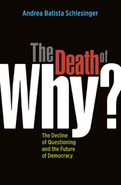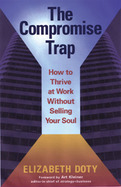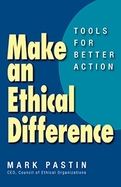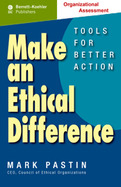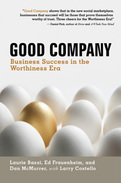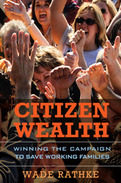2009
But the situation isn't hopeless. Schlesinger profiles individuals and institutions renewing the practice of inquiry—particularly in America's youth—at a time when our society demands such activity from us all. Our resilience will depend on our ability to struggle with what we don't know, to live and think outside comfortable bubbles of sameness, and, ultimately, to ask questions.
• Argues passionately for the critical importance of inquiry to a healthy democracy
• Shows how the very institutions that should be encouraging inquiry—schools, the media, government, the Internet—are actually discouraging it
• Highlights hopeful examples of people working to restore inquiry to its rightful place of importance
The spirit of inquiry is the engine of democracy. The democratic process is nothing less than citizens regularly asking what kind of society they want to live in and whom they want to lead them. But more and more people are avoiding the whole messy business of questioning. Americans are instead being trained to look for ready-made answers, with potentially dire implications for the health of our society.
In this impassioned new book, Andrea Batista Schlesinger argues that we’re besieged by cultural forces that urge us to avoid independent thought and critical analysis. The media reduces politics to a spectator sport, focusing on polls and personalities rather than issues and ideas. Schools teach to standardized tests—students learn to fill in the bubbles, not open their minds. “Financial literacy” courses have replaced civics classes, graduating smart shoppers rather than informed citizens. Even the Internet promotes habits that discourage inquiry.
Regurgitating search-engine results becomes a substitute for genuine research and reflection. Social networks promote connection rather than engagement. With all the information available online, over a third of those younger than twenty-five say they get no news on a typical day, up from 25 percent in 1998.
The situation isn’t hopeless. Batista Schlesinger spotlights individuals and institutions across the country that are working to renew a healthy sense of curiosity and skepticism, particularly in American’s youth. It is, at this point, an uphill battle but one well worth undertaking. The Death of “Why?” offers both a penetrating socio-cultural critique of our current path and a way forward for cultivating inquiry and reinvigorating our democracy.
2009
Existing ethics books are of limited use. They generally feature one author's opinions on very specific situations, which may well have nothing to do with the problems we're facing. And anyway, we don't need expert advice. Mark Pastin insists every one of us is qualified to resolve even the thorniest dilemmas ourselves, and in this profoundly practical book he gives us the tools to do just that.
Pastin argues that we all have an innate ethical –he calls it “the ethics eye.” The problem is, we're not aware we have it or how to develop it. Here he provides practical tools we can use to open up our ethics eye so that we can consistently see what is right and do it.
Make an Ethical Difference shows how to apply these tools using actual ethical dilemmas drawn from Pastin's decades of experience as an advisor to governments, corporations, and NGOs. The point is not to try to wedge your situation into one of the examples—it's to show how a tool that can be applied to any situation is used in one particular instance. And once you've reached a decision, Pastin offers strategies for building consensus with those who might disagree with you.
People often feel hopeless and skeptical that there is anything they as individuals can do to raise society's ethical level or resolve long-standing impasses. By using the unique tools in this book, we will gain confidence in our innate ethical sense and take actions that will elevate the ethical level of the groups and organizations we belong to and society as a whole.
Product: Online streamed self-assessment application (not downloaded), limited one-year subscription (5 tests or 12 months, whichever comes first), password controlled
Duration: 23 questions in five categories: 1) Organizational Ethics Scale, 2) Compliance Scale, 3) Ethical Concerns Scale, 4) Leadership Ethics, 5) Alignment Scale. The self-assessment takes 10-15 minutes to answer.
Results: You will receive a line graph that shows whether the ethical agreement between you and your organization falls above or below a key threshold in the areas listed above. The author also offers detailed interpretation of your results in each of the five areas. By reading your results, you can get important insights on how aligned you are with your organization, and how you can move towards better alignment. There are also opening and closing statements from the author, the ability to compare current and former results, and a print option.
BASED ON THE BOOK, MAKE AN ETHICAL DIFFERENCE. Book summary: We are plagued today by a decline in ethical behavior. Scandals come so thick and fast that any attempt to list them is out of date in weeks if not days. But ethics isn't just a matter of headlines; it's a part of everyone's life. We're called on to make ethical decisions, large and small, all the time. This can be particularly tricky in the workplace, where our decisions can affect not just ourselves but coworkers, clients, customers, even the entire company
Existing ethics books are of limited use . They generally feature one author's opinions on very specific situations, which may well have nothing to do with the problems we're facing. And anyway, we don't need expert advice. Mark Pastin insists every one of us is qualified to resolve even the thorniest dilemmas ourselves, and in this profoundly practical book he gives us the tools to do just that.
Pastin argues that we all have an innate ethical sense that enables us to make the right choice in any situation. He calls it "the ethics eye." The problem is, we're not aware we have it or how to develop it. So he provides practical tools we can use to open up our ethics eye so we can consistently see what is right and do it.
Making an Ethical Difference shows how to apply these tools using actual ethical dilemmas drawn from Pastin's decades of experience as an advisor to governments, corporations, and NGOs. The point is not to try to wedge your situation into one of the examples-it's to show how a tool that can be applied to any situation is used in one particular instance. And once you're reached a decision he offers strategies for building consensus with those who might disagree with you.
People often feel hopeless and skeptical that there is anything they as individuals can do to raise society's ethical level or resolve longstanding impasses. By using the unique tools in this book we will gain confidence in our innate ethical sense and take actions that will elevate the ethical level of the groups and organizations we belong to and society as a whole.
PURCHASER AND USER NOTE: If you are an individual consumer newly purchasing the assessment, go directly to the shopping cart by clicking the "add to cart" icon to your left. If you are a member of an organization that has purchased a bulk order, or if you already bought the assessment in the last 12 months and are retaking it now using the original Access Key to retake the assessment please log in here. New registrants: Please enter your "Access Key" into the input field to enter the self-assessment for the first time. A note to frequent purchasers: You cannot use your current bkconnection.com password for this product; you must create and use a new password. For any questions, please contact the support desk at 800-929-2929 (8 am-9 pm Eastern U.S. time, Monday through Friday), or [email protected]. Thank you.
2011
Firms foul the planet but keep raking in revenue.
Reckless greed on Wall Street goes largely unpunished.
More evidence that bad guys finish first in business?
No. A different story is unfolding.
Laurie Bassi and her coauthors show that despite the dispiriting headlines, we are entering a more hopeful economic age.
The authors call it the “Worthiness Era.” And in it, the good guys are poised to win.
Good Company explains how this new era results from a convergence of forces, ranging from the explosion of online information sharing to the emergence of the ethical consumer and the arrival of civic-minded Millennials. Across the globe, people are choosing the companies in their lives in the same way they choose the guests they invite into their homes. They are demanding that companies be “good company.”
Proof is in the numbers. The authors created the Good Company Index to take a systematic look at Fortune 100 companies' records as employers, sellers, and stewards of society and the planet. The results were clear: worthiness pays off. Companies in the same industry with higher scores on the index—that is, companies that have behaved better—outperformed their peers in the stock market. And this is not some academic exercise: the authors have used principles of the index at their own investment firm to deliver market-beating results.
Using a host of real-world examples, Bassi and company explain each aspect of corporate worthiness and describe how you can assess other companies with which you do business as a consumer, investor, or employee. This detailed guide will help you determine who the good guys are—those companies that are worthy of your time, your loyalty, and your money.
2009
• By the founder of ACORN, the nation’s largest grassroots community organization of low- and moderate-income people
• Goes beyond piecemeal solutions to present a holistic strategy for helping working people establish a solid economic foundation
• Draws on lessons learned from Rathke’s 40 years in the field
America’s safety net is torn and tattered. Income inequality continues to grow—the gap between rich and poor has expanded fivefold in the last 25 years. For millions of working families achieving basic middle class comforts has begun to seem as distant a dream as winning the lottery. What is needed, and what veteran organizer and ACORN founder Wade Rathke provides in this hard-hitting new book, is a comprehensive grassroots strategy to create what he calls citizen wealth: an enduring foundation on which working people can build a future that extends beyond paying next month’s rent.
Rathke shares breakthrough strategies that have enabled ACORN and other organizations help people secure the basics of citizen wealth—a house and a decent income—offering from-the-trenches advice on mounting successful living wage campaigns, battling unscrupulous and predatory lending practices, and developing new forms of worker organizations to protect wages and benefits. The anti-poverty programs still out there can provide critical support for citizen wealth-building efforts, but they’re woefully underutilized. Rathke shows how to cut through government indifference and bureaucratic obstacles to provide those in need with access to these vital resources.
But community organizations can’t do it alone. Rathke describes ACORN partnerships with HSBC Bank and H & R Block that helped these businesses see building citizen wealth as a new market opportunity—a win for them and for the people they once exploited. And he looks at other examples of strange bedfellows in the fight for citizen wealth, including Citibank, once the target of massive protests by ACORN and now, working with them, a major investor in working class communities.
“We need to create a national economic and political consensus that increasing family income, wealth and assets is not `welfare’ or an entitlement ‘give-away” program but an investment in the public good and well-being.” Rathke writes. Based on forty years of hard-won experience, Wade Rathke offers a new blueprint for helping millions to achieve the American Dream.


